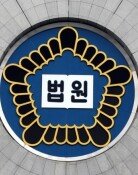Samsung`s new investment plan
Samsung Electronics will ramp up investments to create more than 30,000 jobs at its Godeok Industrial Complex in Pyeongtaek, Gyeonggi Province. It will build an industrial base within the complex for next-generation growth industries, including solar cells and medical devices, covering up to 3.95 square kilometers, or 2.4 times the size of its Suwon site. This is the biggest for a Samsung site. Construction will be completed at the end of 2015 and investments of billions of U.S. dollars will be made. Massive investments by a conglomerate is encouraging particularly at a time of economic downturn. A Pyeongtaek resident said the city will be the next Samsung city following the first in Tangjeong.
Advanced IT and future growth industries create high value-added jobs that young people hope to get. These jobs are fundamentally different from those the Korean government has created through stop-gap fiscal spending measures. The U.S. faces fears of a "fiscal cliff," or a bundle of momentous spending cuts that brings economic shocks. Reduced fiscal spending could lead to fewer jobs and sluggish consumption. Korea also faces fiscal risks because of welfare spending.
The Korean economy could grow at the 2-percent range this year. Corporate investment and job creation are the major driving forces of an economy. According to a survey by the Korean Chamber of Commerce and Industry and Hyundai Economic Research Institute on 2,028 adults nationwide, the largest share, or 48.6 percent, said job creation is what they want from companies. The 600 largest companies (excluding financial institutions) including Samsung, Hyundai Motor, SK and LG, jointly plan to invest a record 140.77 trillion won (125 billion dollars) this year. Deregulation and improvement in corporate environment are crucial to boosting investment.
Samsung had faced challenges until finally came up with its latest investment decision. It took a considerable time for the company to receive state financial support for base facilities of the industrial complex, including entry roads, water supply and waste treatment. Approval on the establishment of the remaining work and plant construction remains pending and will have to be swiftly implemented. Rival countries including the U.S. and China lend land sites almost for free to companies that make massive investments while offering them benefits. In a speech to Congress early his year, U.S. President Barack Obama said he will offer tax benefits to companies returning to the country. The Korean government should refrain from putting excess regulation on large companies who might be tempted to move overseas. Politically ill anti-corporate sentiment will force large companies lose their appetite for investing at home, and the public will eventually suffer from the ensuing side effects.







